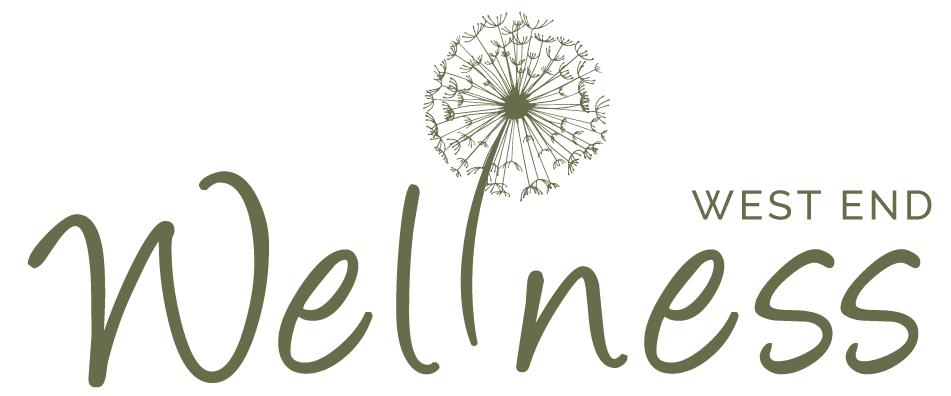Fatigue & Swollen Glands: Is Your Immunity Struggling?
Table of Contents Show
Quick Summary
Feeling constantly tired, catching every cold, and noticing swollen glands? These symptoms often appear together, signalling your body needs attention. In this comprehensive guide, we explore the connection between fatigue, immunity, and lymphatic health, offering natural solutions to help restore your vitality.
Whether you're dealing with occasional tiredness or chronic fatigue, understanding these signals is your first step toward renewed energy and stronger health.
Are you hitting the snooze button more than usual?
Perhaps you've noticed those lymph nodes feeling tender again, or you're catching every cold that passes through your office. If you're nodding along, your body might be trying to tell you something important.
Many of us dismiss these signs as just "being busy" or "that time of year."
But when fatigue becomes your constant companion, and your immune system seems to be waving a white flag at every passing virus, it's time to listen to what your body is really saying.
In this guide, we'll explore why these symptoms might appear together, what they could mean, and, most importantly, how natural approaches can help restore your vitality. Whether you're dealing with occasional fatigue or chronic immune challenges, understanding these signals is your first step toward feeling like yourself again.
Understanding the Connection
Ever wondered why feeling tired often comes hand-in-hand with getting sick? It's not just coincidence – these symptoms are deeply interconnected through your body's complex defense system. According to research from the NHS, extreme tiredness can affect multiple body systems, making daily activities like taking a shower or preparing a meal feel overwhelming.
What's particularly interesting is how these symptoms create a cycle. When your immune system is challenged, it requires enormous energy to mount a defence. As noted in NHS studies, this can trigger what's known as "post-exertional malaise" – where even small amounts of activity can leave you exhausted for days or even weeks.
Think of your immune system as a sophisticated security system. When it's working overtime, it needs extra energy to function, which can lead to:
Persistent fatigue that isn't relieved by rest
Swollen lymph nodes that act as warning signals
A weakened defense against common infections
Changes in sleep patterns and quality
Difficulty maintaining normal daily activities
The connection becomes even more fascinating when we look at recent immune system research, which has identified "distinct immune signatures" in people experiencing chronic fatigue.
Scientists at Griffith University found significant changes in natural killer cells and other immune markers, suggesting that what you're experiencing isn't "just in your head" – it's a measurable biological response.
Recognizing the Signs
Persistent Fatigue
- Difficulty getting out of bed, even after adequate sleep
- Feeling exhausted after minimal physical activity
- Mental fog and difficulty concentrating
Compromised Immunity
- Frequent infections
- Slow recovery from illnesses
- Significant impact on energy levels and overall health
Swollen Lymph Nodes
- Tender areas in the neck, armpits, or groin
- Visible or palpable swelling
- Indication of active immune response
Natural Approaches to Recovery
When dealing with fatigue, lowered immunity, and swollen glands, many people's first instinct is to seek quick fixes or temporary solutions. While conventional treatments can be necessary in some cases, they often address the symptoms rather than the underlying imbalances that led to these issues in the first place.
Natural approaches work differently. Instead of masking symptoms, they support your body's innate healing abilities, helping to restore balance from within.
Research has shown that our immune system responds positively to holistic interventions that address multiple aspects of health simultaneously. This whole-body approach not only helps alleviate current symptoms but also builds resilience against future health challenges.
Think of it like tending a garden – rather than just pulling weeds (treating symptoms), we're enriching the soil, providing proper nutrients, and creating an environment where health naturally flourishes.
Here's how we can nurture your body back to vitality:
-
Your immune system requires specific nutrients to function optimally. Unlike restrictive diets or temporary cleanses, focusing on nourishing foods creates a sustainable foundation for lasting health. Consider your plate as medicine:
Colorful fruits and vegetables rich in antioxidants to combat inflammation
Probiotic-rich foods that support your gut-immune connection
Zinc-rich foods like pumpkin seeds and leafy greens for immune strength
Vitamin C-rich foods such as citrus fruits and bell peppers for natural defense
-
True healing requires more than just changing what you eat – it's about creating daily rhythms that support your body's natural healing processes:
Prioritize quality sleep (7-9 hours nightly) to allow for cellular repair
Practice stress management techniques that work with your lifestyle
Incorporate gentle movement that energizes rather than depletes:
Walking in nature
Gentle yoga
Tai Chi
Light stretching
-
These time-tested healing modalities work with your body's natural systems to restore balance:
Acupuncture for immune support and energy balance
Herbal medicine to strengthen immunity naturally
Lymphatic drainage massage to support detoxification
Mind-body practices like meditation to reduce stress and support healing
Each of these approaches builds upon the others, creating a comprehensive strategy for recovery. The key is finding the right combination that works for your unique situation and lifestyle.
Building Long-term Resilience
Recovery is just the first step in your wellness journey. True health comes from building a strong foundation that helps prevent future episodes of fatigue and immune challenges. Studies have shown that people who develop sustainable health practices are better equipped to maintain their energy levels and immune function over time.
Think of resilience like building a house – you need strong foundations, reliable support structures, and regular maintenance. It's not about pursuing perfect health but rather creating a robust system that can adapt to life's challenges.
When we work with patients at West End Wellness, we focus on developing habits that feel natural and sustainable rather than restrictive or overwhelming.
-
Exercise shouldn't feel like punishment or drain your energy reserves. Instead, focus on movement that energizes and strengthens:
Start with gentle activities that match your current energy levels
Pay attention to how your body responds to different types of movement
Gradually increase intensity as your strength builds
Choose activities you genuinely enjoy, making them easier to maintain
-
Chronic stress can significantly impact your immune system and energy levels. Creating effective stress management strategies is crucial:
Develop a daily relaxation practice that fits your schedule
Learn to recognize early signs of stress in your body
Set and maintain healthy boundaries in work and relationships
Create regular time for activities that bring you joy and peace
-
Your environment plays a crucial role in maintaining good health. Consider these aspects:
Minimize exposure to toxins in your home and workplace
Create a sleep sanctuary that promotes quality rest
Stay hydrated with clean, filtered water
Pay attention to how different environments affect your energy levels
-
Moving beyond basic healthy eating, develop a deeper understanding of how food affects your energy and immunity:
Learn to identify which foods energize or drain you
Create sustainable eating patterns rather than following strict diets
Plan ahead for busy periods to maintain healthy habits
Listen to your body's changing nutritional needs across seasons
-
Building resilience isn't a solo journey. Research indicates that social connections play a vital role in immune function and overall health:
Connect with others who share your wellness goals
Build a support network of healthcare providers who understand your needs
Share your journey with family and friends who can support your choices
Consider joining wellness-focused community groups or classes
When to Seek Professional Help
Listening to your body isn't always easy, especially in today's fast-paced world. Many of us have become experts at pushing through fatigue, dismissing swollen glands as "just another cold," or attributing our low immunity to stress. While these symptoms can be common, they shouldn't be your constant companions.
We often see patients who've spent months – sometimes years – trying to navigate these symptoms alone. They've tried changing their diet, adjusting their sleep schedule, or taking over-the-counter supplements. While these steps can be helpful, sometimes they're not enough.
More importantly, pushing through persistent symptoms without proper support can lead to longer recovery times and increased frustration.
Think of your body like a sophisticated car – when multiple warning lights appear on the dashboard, it's time to consult an expert. Just as you wouldn't ignore persistent warning signals in your vehicle, you shouldn't ignore your body's calls for attention.
Professional guidance becomes particularly important when you notice the following:
Severe fatigue that persists beyond two weeks, especially if it's affecting your ability to perform daily tasks
Swollen lymph nodes that don't subside or keep returning
Recurring infections that suggest your immune system needs extra support
Unexplained weight changes that accompany your fatigue
Night sweats or fever that can't be attributed to normal causes
Recent research shows that early intervention and proper support can significantly improve recovery time and overall outcomes.
At West End Wellness, we believe in creating a safe space to express your concerns and receive personalized guidance that considers your unique symptoms, lifestyle, and health goals.
Learn how acupuncture enhances the immune system by reducing inflammation, boosting immune cells, and promoting relaxation.
Frequently Asked Questions
Why am I so tired, and my glands are swollen?
Experiencing fatigue alongside swollen glands often indicates your immune system is actively fighting an infection or dealing with inflammation. When your body is working hard to combat illness, it requires extra energy, leaving you feeling exhausted.
This combination of symptoms commonly occurs with viral infections, but if they persist for more than two weeks, it's important to consult a healthcare professional for proper evaluation.
Can low immunity cause swollen lymph nodes?
Yes, a weakened immune system can lead to swollen lymph nodes. Your lymphatic system plays a crucial role in fighting infections, and when your immunity is low, your lymph nodes may become enlarged as they work harder to filter out harmful substances.
Research from immune specialists indicates this is your body's natural response to various challenges, from common infections to more serious conditions requiring medical attention.
What does lymphoma fatigue feel like?
Lymphoma-related fatigue is typically more intense than normal tiredness. According to healthcare specialists, it's often described as an overwhelming exhaustion that doesn't improve with rest or sleep.
Unlike regular fatigue from a busy day, people experiencing lymphoma-related fatigue often report feeling physically heavy, having difficulty with simple tasks like showering or preparing meals, and noticing a significant decrease in their ability to concentrate.
This fatigue may be accompanied by other symptoms like unexplained weight loss or night sweats. While extreme fatigue can have many causes, any persistent, severe tiredness that interferes with daily life should be evaluated by a healthcare professional.
What are the early warning signs of lymphoma?
Early signs of lymphoma may include persistent swollen lymph nodes (usually painless), unexplained fatigue, night sweats, and unexplained weight loss. You might also experience recurring fevers and reduced appetite.
While these symptoms can be caused by many less serious conditions, medical professionals recommend seeking evaluation if these signs persist for more than two weeks, particularly if swollen lymph nodes don't resolve.
Conclusion: Nurturing Touch, Lasting Benefits
As we've explored the world of professional infant massage, it's clear that this gentle therapy offers far more than just a soothing touch for your little one.
We set out to understand the benefits of infant massage and how a registered massage therapist (RMT) can support your baby's development.
Let's recap the key points to remember:
Professional infant massage provides a range of physical benefits, including improved circulation, digestive support, and customized care tailored to your baby's unique needs.
The emotional and psychological benefits are profound. They foster relaxation, positive associations with touch, and even support parent-child bonding.
Developmental advantages include sensory integration, motor skill support, and potential cognitive benefits.
RMTs use specialized, gentle techniques adapted specifically for infants, ensuring a safe and nurturing experience.
Regular sessions can be incorporated into your baby's routine, with RMTs equipped to handle challenges that may arise.
As you consider options for supporting your baby's growth and well-being, remember that professional infant massage is a valuable tool in your parenting toolkit. It's not just about the immediate comfort it provides but the long-term benefits it can offer for your child's development.
Whether you're dealing with specific concerns like colic or simply want to give your baby the best start possible, consulting with an RMT who specializes in infant massage could be an excellent next step.
These professionals can provide personalized care and guidance, helping you and your baby experience the full benefits of this ancient yet scientifically-supported practice.
Above all, remember that professional infant massage is a beautiful way to complement the love and care you're already providing. It's an investment in your baby's future, nurturing their body, mind, and spirit through the power of touch.
In the hands of a skilled RMT, each gentle stroke is a step towards a healthier, happier future for your little one.
If you have any further doubts or questions regarding this subject or another treatment, contact one of our experienced Acupuncturists or Registered Massage Therapists here at West End Wellness Clinic. You can either give us a call or make an appointment.
Disclaimer: Please remember this article is for informational purposes only and should not replace professional medical advice. Please consult a healthcare provider or someone with the correct qualifications before starting any new exercise or treatment program.




